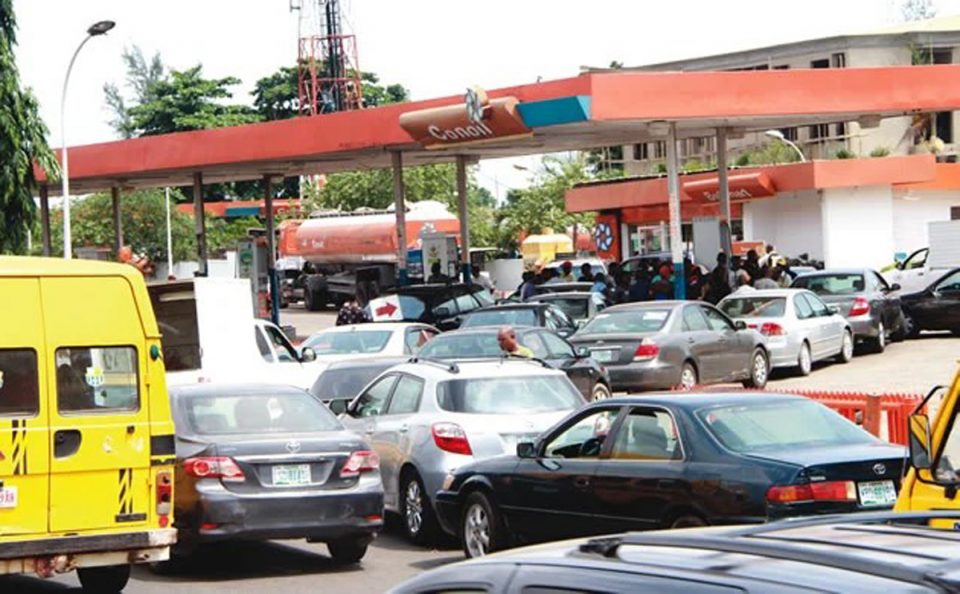Business activities driven by the private sector slumped for the first time in almost three years as companies reduced output and cut jobs due to cash and fuel shortages in February, S&P Global said yesterday.
The Purchasing Managers’ Index (PMI) released by the organisation is a measure of the prevailing direction of economic trends in the manufacturing and service sectors.
According to the S&P PMI, business activities fell to 44.7 in February from 53.5 the month before, being the worst reading since the height of the coronavirus pandemic in June 2020.
The report added that the February PMI data indicated that cash shortages across the Nigerian economy had a severe impact on the private sector midway through the first quarter of the year.
It noted that substantial declines were seen in both output and new orders while firms scaled back their purchasing activities and employment.
“Companies were also impacted by shortages of fuel, which added to price pressures and led to supplier delivery delays,” S&P added.
Usually, PMI readings above 50.0 signal an improvement in business conditions the previous month, while readings below 50.0 show deterioration.
“The headline PMI dropped below the 50.0 no-change mark in February, posting 44.7 from 53.5 in January. Business conditions deteriorated markedly ending a 31-month sequence of expansion.
“The decline in operating conditions was the sharpest since the survey began in January 2014, excluding the opening wave of the COVID-19 pandemic in the second quarter of 2020.
“The most severe impacts of cash shortages were seen with regards to output and new orders which both fell substantially as customers were often unable to secure the funds to commit to spending.
“ The decline in new orders was the first since June 2020, while the fall in output ended a seven-month sequence of growth. In both cases, the reductions were the most pronounced in the survey’s history, apart from during the opening wave of the COVID-19 pandemic,” the report stated.
With new orders and output falling, S&P stated that companies reduced their input buying and staffing levels accordingly, with the declines being the first in 32 and 25 months respectively.
Furthermore, the decrease in purchasing reflected not only a drop in customer demand but also difficulties for companies to find the funds to pay for items, the report pointed out.
Alongside cash shortages, the private sector, it said , was also impacted by a scarcity of fuel in February, a situation that had a notable PMI impact on suppliers’ delivery times, which lengthened for the first time in close to six-and-a-half years and to the greatest extent since April 2016.
“In turn, shortages led to a rise in fuel costs which were widely mentioned as having been behind a further marked increase in purchase prices. Higher raw material costs and currency weakness were also factors pushing up purchase prices,” S&P Global noted.
According to the report, the rate of inflation was the softest since June 2020, but marked nonetheless and stronger than the series average, with staff costs also rising again in February, but at a modest pace.
“The passing on of higher input costs to customers resulted in a further sharp rise in output prices, albeit one that was the weakest in four months,” the statement stressed.
It explained that hopes that economic conditions will improve alongside business expansion and investment plans, led to confidence in the year-ahead outlook for business activities, stressing that sentiment was at a five-month high but still relatively muted.
Nigeria’s central bank announced plans in October to replace high-denomination banknotes, including the N200, N500 and N1000 bills to mop up excess cash liquidity and take control of money supply.
A lack of new notes has led to a shortage of cash in an economy with a vast informal sector where only 60 per cent of households have access to a bank account.
The slump in PMI shows that while the central bank has managed to reduce the amount of cash held outside the banking system to a record low, it has come at a cost to the economy.
“The lingering cash shortages will likely continue to dampen economic activities and could depress economic growth” this quarter, said the Head Of Equity Research West Africa at Stanbic IBTC Bank, Muyiwa Oni, adding that the Nigerian economy could grow at 3 per cent in 2023 due to the challenges.
“The steep decline is attributed to the cash shortage challenges experienced across the country during the month. This consequently resulted to contraction in both outputs and consumer orders, which made firms scale back on purchasing and hiring activities.
“Furthermore, persistent fuel shortages from the beginning of the year saw petrol pump prices increase, which both increased production cost for firms and led to supplier delivery delays. Sure, the lingering cash shortages will likely continue to dampen economic activities and could depress economic growth in Q1:23,” he stated.



